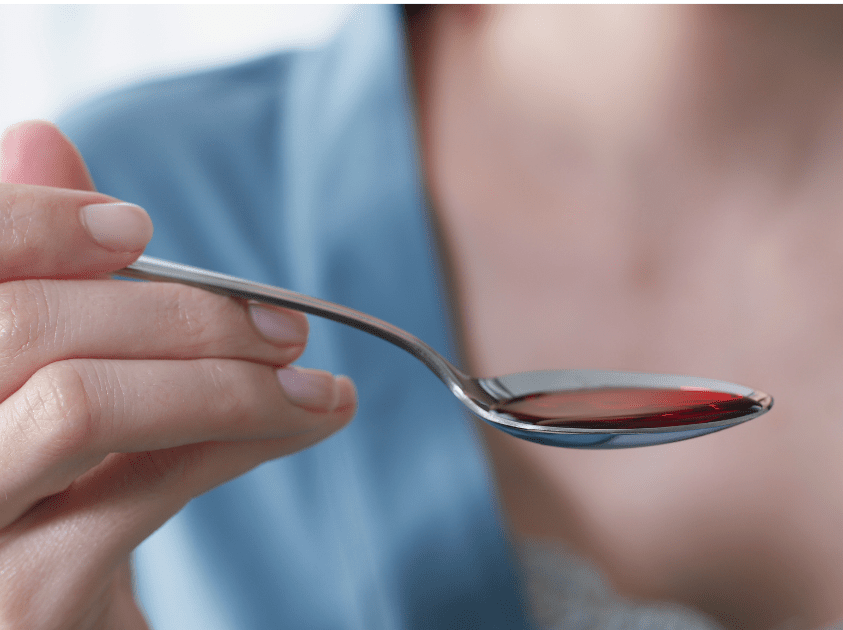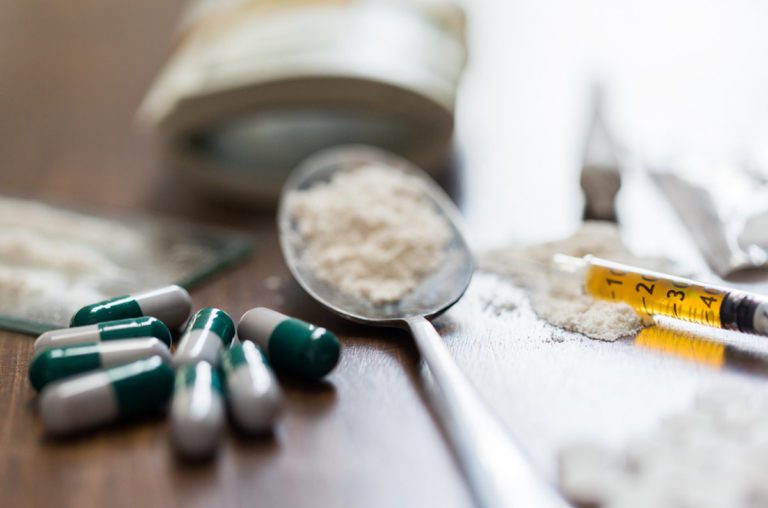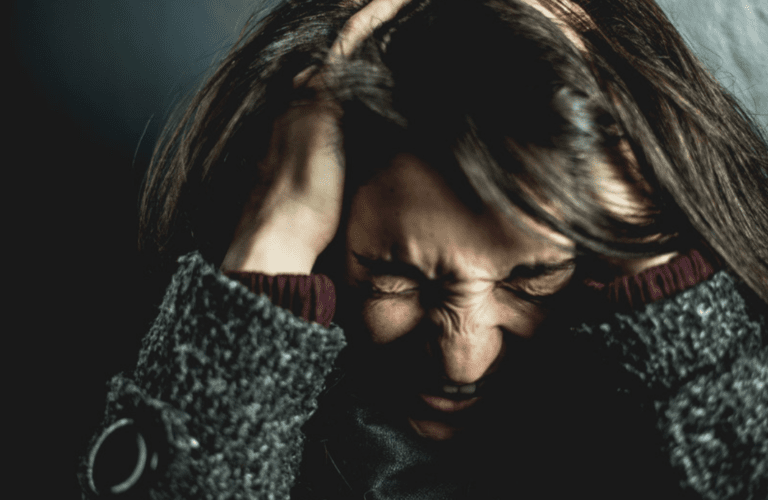Dangers of Mixing Alcohol and Benadryl
Not everyone is aware that the medication in Benadryl is actually the same medication (Diphenhydramine) contained in many over-the-counter (OTC) sleeping pills including Unisom and Advil PM. This is one of the many reasons why it can be dangerous to mix alcohol and Benadryl.
Benadryl is an antihistamine that is often recommended for use for allergies and allergic reactions. People sometimes discover by chance that Benadryl can appear to be a helpful sleep aid. Unfortunately, in many instances, people quickly develop a tolerance to Benadryl and, additionally, may have adverse reactions. Excessive use of Benadryl as a sleep aid can result in increased sleeplessness, nightmares, and other undesirable side effects.
Benadryl can have undesirable side effects including:
- dry mouth
- dizziness
- nervousness
- vomiting
- constipation
- increased chest congestion
- headache
- muscle weakness
- excitement
- especially common in children
High doses of Benadryl can be dangerous. Large doses of Benadryl can result in:
- Heart problems
- Seizures
- Loss of consciousness
Adolescents, teenagers, and young adults have ended up in the ER, and some have tragically died, as a result of what has been referred to as the “Benadryl Challenge” posted on the social media platform TikTok. The challenge encourages people to film themselves after taking unsafe quantities of Benadryl.
The Dangers of Mixing Alcohol and Benadryl
When combined, alcohol and Benadryl can result in negative outcomes with the potential for dangerous consequences. Both alcohol and Benadryl are sedatives that depress the body’s central nervous system. Mixing depressants is always dangerous. By mixing multiple depressants, you’re doubling down on the effects and side effects of both drugs.
Both alcohol and Benadryl can cause dehydration independently. When combined, a person’s body can be badly dehydrated, and even in an only mildly unpleasant scenario, the result is likely to be a worse hangover than would otherwise result.
Chemicals in Benadryl block the action of a neurotransmitter called acetylcholine which is involved in the process of learning and creating memories. By blocking this neurotransmitter, taking Benadryl can result in impaired decision-making and acute memory issues.
Both Benadryl and alcohol can be problematic and potentially dangerous when combined with other substances. Examples include:
- Other antihistamines
- Antidepressants
- Cough and cold medicine
- Benzodiazepines (“benzos”)
- Sedatives
- Tranquilizers
- Sleep medications
Benadryl can impact mental alertness. Avoid driving or engaging in other tasks that involve careful attention and quick reflexes if you take Benadryl. Adding alcohol into the mix will certainly increase risk, especially as both substances can cause extreme drowsiness.
It’s important to be aware of substances that may contain hidden sources of alcohol. Often, people do not realize that cough medicine and other OTC medications can contain alcohol. Taking these with Benadryl can be a problem and taking them while drinking means you’re actually introducing more alcohol into your system than you may have realized.
Overdose Risk
It’s essential to avoid any situation that can increase the likelihood of an overdose. Benadryl, other antihistamines, sleep meditations, and similar substances that act as depressants, sedatives or tranquilizers, can be extremely dangerous when mixed with alcohol. When you think of alcohol poisoning, you probably think of someone having a large number of drinks in a short period of time. While this may be the most often reason a person specifically overdoses on alcohol, the number of overdoses that occur as a result of combining multiple substances is high and alarmingly common.
What To Do in the Event of Alcohol Poisoning
There is a difference between someone who has simply had too much to drink and someone who has alcohol poisoning. A person who has had just a few drinks too many should be monitored in case it seems increasingly likely that they do have alcohol poisoning.
If a person is believed to have alcohol poisoning they are in a life-threatening situation. Call for an ambulance immediately.
A person with alcohol poisoning is at risk for breathing issues and choking on their own tongue. Turn a person on their side if you believe they may be suffering from alcohol poisoning.
If they are awake and conscious, attempt to keep them talking until emergency services arrive.
Do your best to explain your actions as you go. This will make the person feel more comfortable and keep them conscious and engaged.
Offer small sips of water to offset the effects of dehydration.
A person who has alcohol poisoning can have acute onset hypothermia. If you have a blanket or jacket on hand, place it over them to keep them warm.
Once emergency medical personnel arrive, allow them to take over the situation.
Factors that Increase the Chances of Overdose
There are many factors that can increase the chances of an overdose. These include increasing the amount of a substance that is used as well as combining substances.
Factors that can increase the likelihood of overdose can include:
- Binge abuse of a substance in a short period of time
- Mixing substances
- Prolonged abuse of alcohol or other substances
- Physical health issues
- Mental health issues
- Recent relapse
- Abusing drugs or alcohol while alone
Factors that Increase the Risk of Alcohol Poisoning
As you might have expected, youth is a factor when it comes to alcohol poisoning. Peer pressure to binge drink large amounts of alcohol in a short amount of time can easily land someone in the hospital.
It’s important to keep in mind that the amount of food you’ve consumed that day does make a difference. Drinking on an empty stomach, a moderately empty stomach, a slightly full stomach, or a full stomach, can make a significant difference.
Previous drinking experience is a factor. Those who have developed a semi-regular or regular habit of having a certain number of drinks are more aware of how alcohol affects their body. Knowing what to expect typically makes a situation safer.
Common Signs and Symptoms of Alcohol Poisoning
There are many possible signs and symptoms that someone has had enough to drink that they have alcohol poisoning. These may include:
- Confusion
- Slow responses
- Severe lack of coordination including an inability to remain standing or walk
- Irregular pulse
- Irregular heartbeat
- Slowed breathing
- Intervals of 10 seconds of more between breaths
- Lack of bladder or bowel control
- Vomiting or choking
- Bluish-colored, cold, or clammy skin
- Bluish-coloring around the lips or fingernails
- A sense that they may be slipping in and out of consciousness
- Shivering due to acute onset hypothermia
- Seizures
Polysubstance Abuse
Polysubstance abuse is a term used for when someone has developed an addiction to more than one substance but does not show a strong preference for a single specific substance. Sadly, some individuals who fall into the pattern of simply seeking out “highs” end up trying random combinations of whatever substances they are able to get their hands on. Certain combinations are inevitably more dangerous than others, however, combinations of substances like Benadryl combined with other medications can prove dangerous or even fatal.
Treatment Options for Alcohol and Substance Abuse
If you or someone you care about is experimenting with drugs or alcohol or you believe is acting recklessly in their choices about how they take medications, we encourage you to reach out to Oasis Recovery to speak with a specialist for more information about the safe use of medications and treatment options for those struggling with addiction.
Contact Oasis Recovery to Begin Recovery Today
At Oasis Recovery, our team of medical professionals takes pride in providing personalized treatment plans designed to meet the needs of our clients. We provide a range of treatment programs including:
- Partial Hospitalization Program (PHP)
- Intensive Outpatient Program (IOP)
- Outpatient Treatment (OT)
- Aftercare Program
Our mental health practitioners provide a range of services and therapies including:
- Cognitive-behavioral therapy (CBT)
- Dialectical behavior therapy (DBT)
- Individual therapy
- Group therapy
- Family therapy
Reach out to us today to learn more about how we can help you find a path towards lasting recovery.












